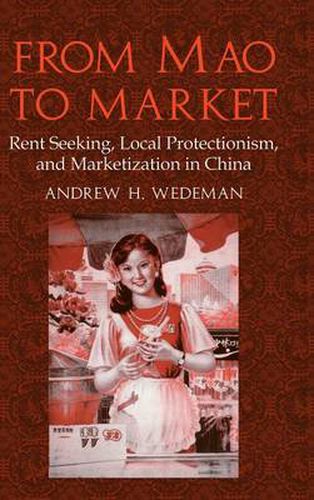Readings Newsletter
Become a Readings Member to make your shopping experience even easier.
Sign in or sign up for free!
You’re not far away from qualifying for FREE standard shipping within Australia
You’ve qualified for FREE standard shipping within Australia
The cart is loading…






Andrew Wedemen argues that China succeeded in moving from a Maoist command economy to a market economy because the central government failed to prevent local governments from forcing prices to market levels. Having partially decontrolled the economy in the early 1980s, economic reformers balked at price reform, opting instead for a hybrid system wherein commodities had two prices, one fixed and one floating. Depressed fixed prices led to ‘resource wars’, as localities battled each other for control over undervalued commodities while inflated consumer goods prices fueled a headlong investment boom that saturated markets and led to the erection of import barriers. Although local rent seeking and protectionism appeared to carve up the economy, in reality they had not only pushed prices to market levels and cleared the way for sweeping reforms in the 1980s, they had also pushed China past the ‘pitfalls’ of reform that entrapped other socialist economies.
$9.00 standard shipping within Australia
FREE standard shipping within Australia for orders over $100.00
Express & International shipping calculated at checkout
Andrew Wedemen argues that China succeeded in moving from a Maoist command economy to a market economy because the central government failed to prevent local governments from forcing prices to market levels. Having partially decontrolled the economy in the early 1980s, economic reformers balked at price reform, opting instead for a hybrid system wherein commodities had two prices, one fixed and one floating. Depressed fixed prices led to ‘resource wars’, as localities battled each other for control over undervalued commodities while inflated consumer goods prices fueled a headlong investment boom that saturated markets and led to the erection of import barriers. Although local rent seeking and protectionism appeared to carve up the economy, in reality they had not only pushed prices to market levels and cleared the way for sweeping reforms in the 1980s, they had also pushed China past the ‘pitfalls’ of reform that entrapped other socialist economies.